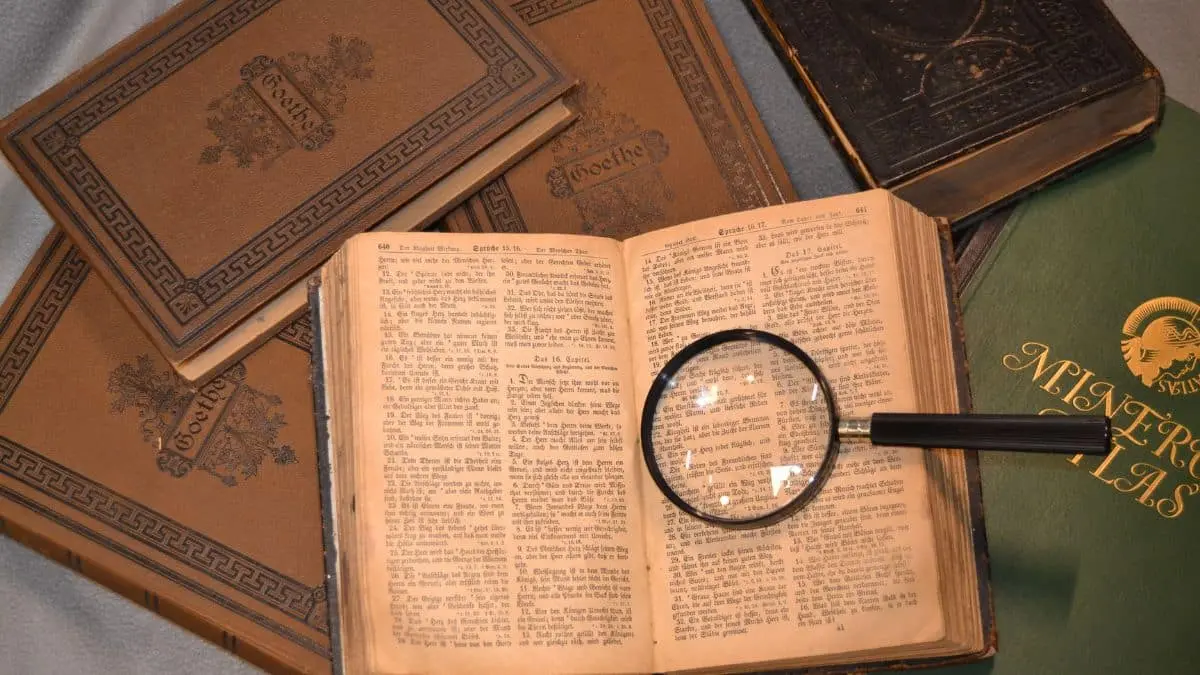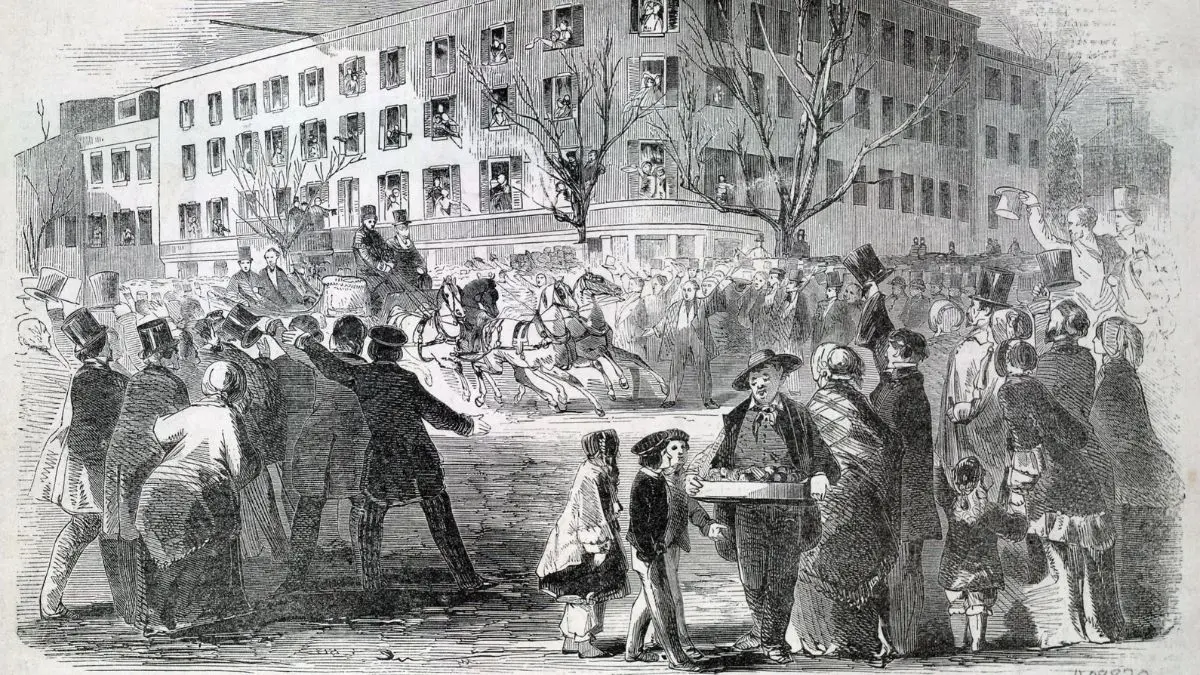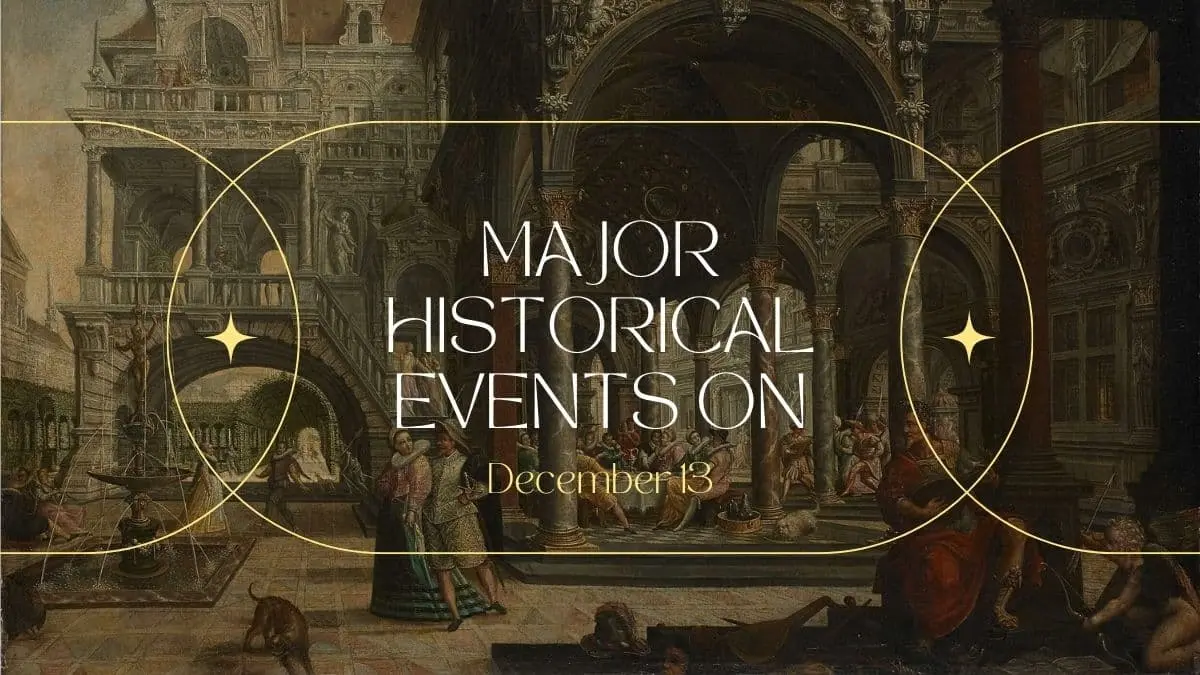Unlocking the annals of time, December 13 stands as a canvas adorned with pivotal moments that have shaped the course of history. This date has witnessed triumphs and tribulations, the rise and fall of empires, and the birth of new eras. Join us on a journey through the corridors of the past as we unravel the tapestry of major historical events on December 13.
Major Historical Events on December 13 – Today in History
- Rebels Surrender at Kenilworth Castle (1266)
- Saint Celestine V Abdication (1294)
- Ibn Battuta Completes “The Travels” (1355)
- John III Becomes King of Portugal (1541)
- Council of Trent Opens (1545)
- Francis Drake’s Circumnavigation (1577)
- Anti-Reformation Decree (1621)
- Formation of Militia Regiments in Massachusetts (1636)
- Abel Tasman Sights New Zealand (1642)
- Battle of Alton (1643)
- Premiere of “Britannicus” by Jean Racine (1668)
- Treaty of Berlin Signed by Prussia (1732)
- Belgium and Russia Sign Trade Agreement (1734)
- William IV Prince of Orange Tests Potatoes (1742)
- First Music Store in America Opens (1759)
- Dartmouth College Receives Charter (1769)
- Paul Revere and Wentworth Cheswell’s Ride (1774)
- Patent for a Dry Dock Issued (1816)
- Rossini Arrives in London (1823)
- Paraguay Declares War On Brazil (1864)
- Paul Revere and Wentworth Cheswell’s Ride (1774)
- Signing of the Declaration of Independence (1776)
- Battle of Saratoga (1777)
- Articles of Confederation Ratified (1781)
- Treaty of Paris (1783)
- Constitutional Convention (1787)
- George Washington Elected First President (1789)
- Whiskey Rebellion (1791)
- Lewis and Clark Expedition Begins (1804)
- War of 1812 Begins
- Battle of New Orleans (1815)
- Missouri Compromise (1820)
- Monroe Doctrine Announced (1823)
- Trail of Tears (1838)
- Texas Declaration of Independence (1836)
- Annexation of Texas (1845)
- Mexican-American War Begins (1846)
- Seneca Falls Convention (1848)
- California Gold Rush (1848)
- Lincoln-Douglas Debates (1858)
- brown-s-raid-on-harpers-ferry-1859″ data-level=”3″>John Brown’s Raid on Harpers Ferry (1859)
- Civil War Begins (1861)
- Emancipation Proclamation (1863)
- Battle of Gettysburg (1863)
- Surrender at Appomattox Court House (1865)
- Reconstruction Era (1865-1877)
- Transcontinental Railroad Completion (1869)
- Chinese Exclusion Act (1882)
- Plessy v. Ferguson (1896)
- Spanish-American War (1898)
- Progressive Era (1890s-1920s)
- World War I (1914-1918)
- Roaring Twenties (1920s)
- Stock Market Crash (1929)
- New Deal (1930s)
- World War II (1939-1945)
- Cold War (1947-1991)
- Civil Rights Movement (1950s-1960s)
- Vietnam War (1955-1975)
- Moon Landing (1969)
- Watergate Scandal (1972-1974)
- End of the Cold War (1991)
- 9/11 Attacks (2001)
- Election of Barack Obama (2008)
- COVID-19 Pandemic (2019-Present)
Rebels Surrender at Kenilworth Castle (1266)
Rebels holed up inside Kenilworth Castle surrender after 172 days to Henry III, ending one of the longest sieges in medieval English history.
Saint Celestine V Abdication (1294)
Saint Celestine V abdicates the papacy after only five months; Celestine hoped to return to his previous life as an ascetic hermit.
Ibn Battuta Completes “The Travels” (1355)
The greatest traveler of his age, Ibn Battuta of Tangier, completes his work “The Travels,” detailing his 29 years spent traveling the Islamic world and beyond, including to India, China, and Indonesia.
John III Becomes King of Portugal (1541)
John III succeeds his father as King of Portugal and the Algarves, at age 19; reigns for 36 years, until his death in 1557.
Council of Trent Opens (1545)
Council of Trent (19th ecumenical council) opened by Pope Paul III. This marked a significant event in the Counter-Reformation.
Francis Drake’s Circumnavigation (1577)
Francis Drake sets sail from England on an epic three-year circumnavigation of the world aboard the ‘Pelican’ (later renamed the ‘Golden Hind’).
Anti-Reformation Decree (1621)
Emperor Ferdinand II delegates 1st anti-Reformation decree, challenging the religious landscape of the time.
Formation of Militia Regiments in Massachusetts (1636)
The Massachusetts Bay Colony organizes three militia regiments to defend the colony against the Pequot Indians. Recognized today as the founding of the United States National Guard.

Abel Tasman Sights New Zealand (1642)
Dutch explorer Abel Tasman sights the South Island of present-day New Zealand; initially, he calls it Staten Landt and changes it a year later to Nieuw Zeeland.
Battle of Alton (1643)
English Civil War: The Battle of Alton takes place in Hampshire.
Premiere of “Britannicus” by Jean Racine (1668)
Jean Racine’s tragic play “Britannicus” premieres in Paris.
Treaty of Berlin Signed by Prussia (1732)
Prussia joins Austria and Russia in signing the Treaty of Berlin, a secret treaty regarding succession to the Polish throne.
Belgium and Russia Sign Trade Agreement (1734)
William IV Prince of Orange Tests Potatoes (1742)
William IV Prince of Orange tests his mother’s potatoes.
First Music Store in America Opens (1759)
First music store in America opens in Philadelphia.
Dartmouth College Receives Charter (1769)
Dartmouth College in New Hampshire receives its charter.
Paul Revere and Wentworth Cheswell’s Ride (1774)
Paul Revere and Wentworth Cheswell ride to warn Portsmouth of the approach of British warships.
Patent for a Dry Dock Issued (1816)
Patent for a dry dock issued to John Adamson, Boston.
Rossini Arrives in London (1823)
Italian opera composer Gioachino Rossini arrives in London.
Paraguay Declares War On Brazil (1864)
War of the Triple Alliance: Paraguay officially declares war on Brazil, invades the next day.
Paul Revere and Wentworth Cheswell’s Ride (1774)
Paul Revere and Wentworth Cheswell ride to warn Portsmouth of the approach of British warships.
Signing of the Declaration of Independence (1776)
Representatives from the thirteen American colonies sign the Declaration of Independence in Philadelphia, marking the birth of the United States.
Battle of Saratoga (1777)
A turning point in the American Revolutionary War, the Battle of Saratoga sees American forces under General Benedict Arnold and Horatio Gates defeat British General John Burgoyne.
Articles of Confederation Ratified (1781)
The Continental Congress ratifies the Articles of Confederation, serving as the first constitution of the United States until the adoption of the current Constitution in 1789.
Treaty of Paris (1783)
The Treaty of Paris is signed, officially ending the American Revolutionary War and recognizing the independence of the United States from Great Britain.
Constitutional Convention (1787)
Delegates convene in Philadelphia to draft the United States Constitution, creating the foundation for the federal government and the country’s legal framework.
George Washington Elected First President (1789)
George Washington is unanimously elected as the first President of the United States by the Electoral College.
Whiskey Rebellion (1791)
Farmers in western Pennsylvania protest against a federal excise tax on whiskey, marking the first test of federal authority under the new Constitution.
Lewis and Clark Expedition Begins (1804)
The Lewis and Clark Expedition, led by Meriwether Lewis and William Clark, sets out to explore the western portion of the United States following the Louisiana Purchase.
War of 1812 Begins
The United States declares war on Great Britain, marking the start of the War of 1812.
Battle of New Orleans (1815)
Fought after the War of 1812 had officially ended, the Battle of New Orleans sees American forces, led by Andrew Jackson, successfully defend the city against British forces.

Missouri Compromise (1820)
In an effort to maintain a balance between slave and free states, Congress passes the Missouri Compromise, admitting Missouri as a slave state and Maine as a free state.
Monroe Doctrine Announced (1823)
President James Monroe declares the Monroe Doctrine, asserting that the Western Hemisphere is closed to further European colonization.
Trail of Tears (1838)
The forced relocation of Native American tribes, including the Cherokee, from their ancestral lands in the southeastern United States to Indian Territory in present-day Oklahoma.
Texas Declaration of Independence (1836)
Texan delegates declare independence from Mexico, leading to the establishment of the Republic of Texas.
Annexation of Texas (1845)
Texas is annexed by the United States, becoming the 28th state.
Mexican-American War Begins (1846)
The United States and Mexico go to war over a border dispute, leading to significant territorial changes.
Seneca Falls Convention (1848)
The first women’s rights convention is held in Seneca Falls, New York, marking a pivotal moment in the women’s suffrage movement.
California Gold Rush (1848)
Gold is discovered at Sutter’s Mill in California, leading to a massive influx of people seeking fortune and contributing to the state’s rapid growth.
Lincoln-Douglas Debates (1858)
A series of debates between Abraham Lincoln and Stephen A. Douglas during the Illinois Senate race, focusing on the issue of slavery.
John Brown’s Raid on Harpers Ferry (1859)
Abolitionist John Brown leads a raid on the federal arsenal at Harpers Ferry, Virginia, in an attempt to start a slave rebellion.
Civil War Begins (1861)
The Confederate attack on Fort Sumter, South Carolina, marks the beginning of the American Civil War.
Emancipation Proclamation (1863)
President Abraham Lincoln issues the Emancipation Proclamation, declaring that all slaves in Confederate territory are to be set free.
Battle of Gettysburg (1863)
A pivotal battle in the Civil War, the Union defeats the Confederacy at Gettysburg, Pennsylvania.
Surrender at Appomattox Court House (1865)
General Robert E. Lee surrenders to General Ulysses S. Grant, effectively ending the Civil War.
Reconstruction Era (1865-1877)
The period following the Civil War is marked by efforts to rebuild and integrate the Southern states back into the Union, with a focus on civil rights and racial equality.
Transcontinental Railroad Completion (1869)
The First Transcontinental Railroad is completed, connecting the East and West coasts of the United States.
Chinese Exclusion Act (1882)
The Chinese Exclusion Act is passed, restricting immigration of Chinese laborers to the United States.
Plessy v. Ferguson (1896)
The Supreme Court decision in Plessy v. Ferguson establishes the “separate but equal” doctrine, allowing racial segregation in public facilities.
Spanish-American War (1898)
The United States defeats Spain in a brief conflict, gaining territories such as Puerto Rico and the Philippines.
Progressive Era (1890s-1920s)
A period of social and political reform, addressing issues like corruption, monopolies, and social inequality.
World War I (1914-1918)
The United States enters World War I, contributing to the Allied victory in 1918.
Roaring Twenties (1920s)
A period of cultural and social change, marked by economic prosperity, the Jazz Age, and significant shifts in societal norms.

Stock Market Crash (1929)
The Wall Street Crash of 1929 triggers the Great Depression, a severe worldwide economic downturn.
New Deal (1930s)
President Franklin D. Roosevelt implements the New Deal, a series of programs and reforms aimed at addressing the economic challenges of the Great Depression.
World War II (1939-1945)
The United States enters World War II after the attack on Pearl Harbor in 1941, contributing to the Allied victory in 1945.
Cold War (1947-1991)
A geopolitical tension between the United States and the Soviet Union, characterized by the arms race, space race, and ideological conflict.
Civil Rights Movement (1950s-1960s)
A social movement advocating for the end of racial segregation and discrimination, leading to landmark legislation like the Civil Rights Act of 1964.
Vietnam War (1955-1975)
The United States becomes involved in the conflict between North and South Vietnam, leading to a controversial and divisive war.
Moon Landing (1969)
NASA’s Apollo 11 mission successfully lands astronauts Neil Armstrong and Buzz Aldrin on the moon.
Watergate Scandal (1972-1974)
A political scandal that leads to the resignation of President Richard Nixon.
End of the Cold War (1991)
The collapse of the Soviet Union marks the end of the Cold War era.
9/11 Attacks (2001)
Terrorist attacks on the World Trade Center and the Pentagon lead to a global war on terror.
Election of Barack Obama (2008)
Barack Obama is elected as the first African American President of the United States.
COVID-19 Pandemic (2019-Present)
The global pandemic caused by the novel coronavirus significantly impacts societies, economies, and healthcare systems worldwide.
Also Read: Major Historical Events on December 12 – Today in History









